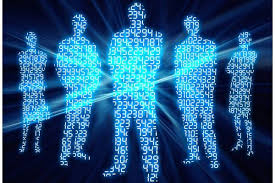The question of value is an intriguing one. What do we value? Are people judged based on their abilities: the man who were strongest were made (or made himself) the leader of the tribe? Or is a man’s value to a larger extent based on his possessions: the man with the largest number of belongings when he died was the winner? In the old days, when someone owned something that someone else wanted, they found ways to exchange items by trading an item with a certain value for one or more items representing a value that both parties could agree were equivalent to the item in question. One day, some clever man (or woman?) came up with the idea of money as a sort of “exchange rate” for “value” and that probably both simplified and complicated things. These days, in the modern society, we all know what things are worth, don’t we? We all know what we are prepared to pay for an item or a service, don’t we? We all know the value of things we find important, don’t we? ………. Or, do we? Do we really?
Thomas Carlyle once said: “He who has health, has hope; and he who has hope, has everything.” We all value health, and historically, health has been seen as created in healthcare. In healthcare, value and money has always been an issue. There are a gazillion different reimbursement systems in healthcare in operation around the globe, one less appreciated than the next, and the person who solves that Gordian knot will probably receive the Nobel prize in both medicine and economics (and possibly also the peace prize…).
However, patients do not want healthcare. We are not really interested in DRG-codes, ICD 10 codes and who gets paid for what.
Patients do not want healthcare, we want health!
However, healthcare can not operate on health, healthcare is driven by money, and the leading “currency” in healthcare is DRG codes, ICD-10 etc. So the question is:
What is the currency in health?
That is of course a very difficult question and I am by no standards an health economist, so please forgive my (probably far too obvious) ignorance. I will nevertheless go out on a limb and say that I think we have a new currency in this field.
I think that the currency in health is data.
We all talk about “data-driven-this” and “big-data-that” so it is apparent that there is great value in data. But who controls that value? Of course the person or organization who controls the data, also controls the value of it. And in healthcare, patients very rarely control their data. Maybe we need a new paradigm? Maybe healthcare needs to let go of the control of the data we as patients generate?
Maybe patients controlling their own data is one of the fundaments to authentic patient engagement?


1 comment